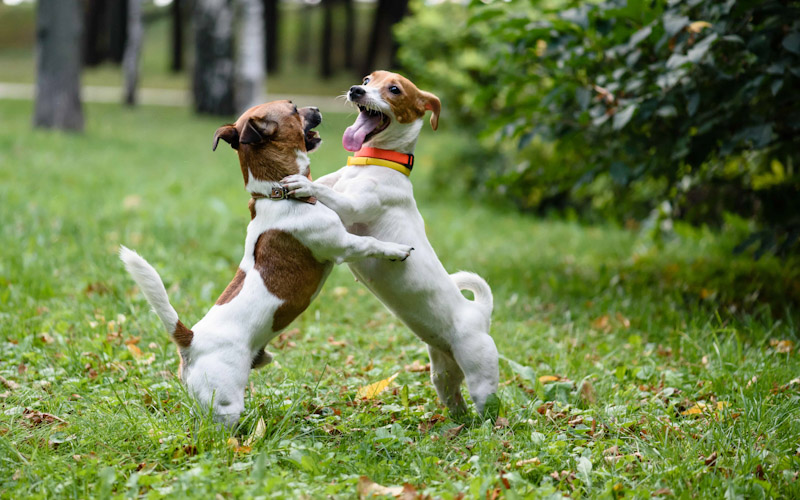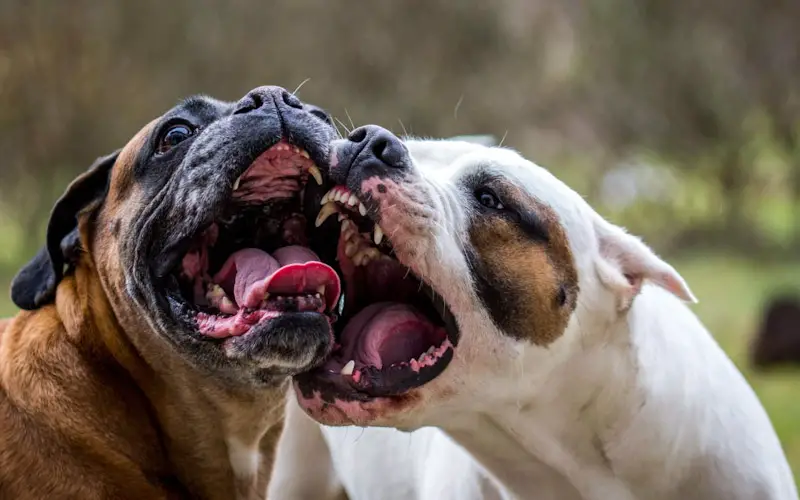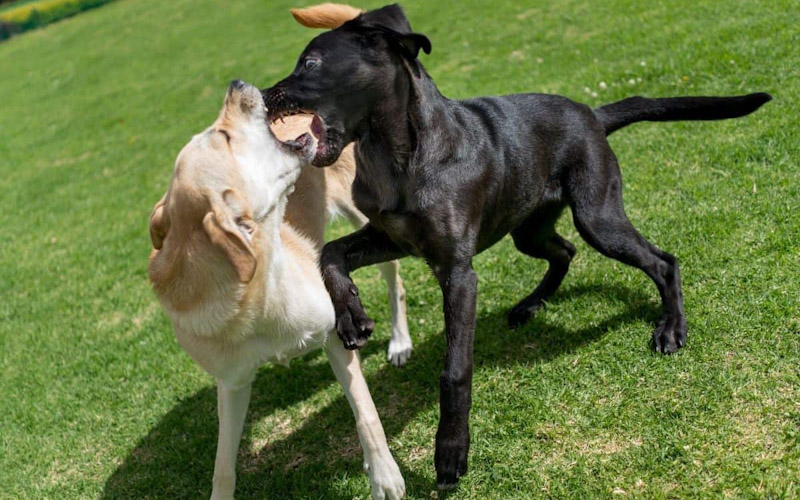Worried about your dogs fighting? Learn effective methods to prevent and manage dog aggression, promoting a peaceful and harmonious household for all.

Dog fighting is a serious issue that can affect many households with multiple dogs. Dog fights can result in injuries to both dogs and humans, as well as emotional distress and behavioral problems. It is important to understand the causes of dog fighting and how to prevent and manage it effectively.
Understanding the Causes of Dog Fighting
There are many possible reasons why dogs may fight with each other in a household, such as:
- Resource guarding: Some dogs may feel the need to protect their food, toys, beds, or other items from other dogs, especially if they have a history of scarcity or competition. This can lead to aggression and conflict over these resources.
- Fear or anxiety: Some dogs may feel threatened or insecure by the presence of other dogs, especially if they have not been properly socialized or have experienced trauma or abuse. This can cause them to react defensively or aggressively to perceived challenges or threats.
- Improper socialization: Some dogs may not have learned how to interact appropriately with other dogs, especially if they were separated from their littermates or mother too early, or have not been exposed to a variety of dogs and situations. This can result in poor communication skills, lack of social etiquette, and difficulty reading other dogs’ signals and intentions.
- Lack of training and boundaries: Some dogs may not have received adequate training or guidance from their owners, or may have been allowed to develop bad habits or behaviors. This can lead to a lack of obedience, respect, and impulse control, as well as dominance issues or challenges to authority.
Preventing Dog Fights
The best way to stop dog fights is to prevent them from happening in the first place. Here are some practical tips on how to prevent dog fights in your household:
- Proper socialization from a young age: Socializing your dogs from a young age is crucial for developing their social skills and confidence. Expose your dogs to a variety of other dogs and situations, and reward them for positive interactions and behaviors. Avoid forcing your dogs to interact with dogs they are uncomfortable with, and respect their individual personalities and preferences.
- Positive reinforcement training to establish obedience and respect: Training your dogs using positive reinforcement methods is essential for establishing obedience and respect. Teach your dogs basic commands and manners, and reward them for following them. Avoid using harsh or punitive methods that can damage your relationship with your dogs or increase their fear or aggression. Be consistent and fair with your rules and expectations, and provide clear and timely feedback to your dogs.
- Managing resources effectively to avoid conflicts: Managing your dogs’ resources can help reduce the chances of conflicts over them. Provide each dog with their own food bowl, water bowl, bed, crate, and toys, and feed them separately or supervise them during meal times. Avoid giving your dogs high-value items that they may guard or fight over, such as bones, rawhides, or chews. If you do give them such items, make sure they are in separate rooms or areas, and remove them when they are done.
- Recognizing signs of aggression and intervening calmly: Recognizing the signs of aggression in your dogs can help you intervene before a fight escalates. Some common signs of aggression include growling, snarling, baring teeth, staring, stiffening, raising hackles, or lunging. If you notice any of these signs, intervene calmly and confidently, and redirect your dogs’ attention to something else. Avoid yelling, hitting, or pulling your dogs apart, as this can worsen the situation or put you at risk of injury.
- Consulting a professional dog trainer for guidance: Consulting a professional dog trainer can help you address any underlying issues or problems that may be causing your dogs to fight. A professional dog trainer can assess your dogs’ behavior, temperament, and history, and provide you with personalized advice and solutions. They can also help you with training, socialization, and management techniques, and refer you to other resources or specialists if needed.

De-escalating and Managing Dog Fights
Sometimes, despite your best efforts, dog fights may still occur in your household. In such cases, it is important to know how to safely de-escalate and manage a dog fight in progress. Here are some important tips on how to do so:
- Prioritizing your own safety and avoiding intervening directly: Your own safety should always be your first priority when dealing with a dog fight. Avoid intervening directly or putting your hands or body between the fighting dogs, as this can put you at risk of serious injury. Instead, try to use other methods or tools to separate the dogs, such as a barrier, a leash, a spray bottle, or a loud noise.
- Using distraction techniques like loud noises or providing separate spaces: One of the most effective ways to stop a dog fight is to distract the dogs with something that will break their focus and attention. This can be a loud noise, such as a whistle, a horn, a clap, or a shout, or a physical object, such as a blanket, a pillow, or a broom. Once the dogs are distracted, you can try to provide them with separate spaces, such as different rooms, crates, or gates, where they can calm down and relax.
- Seeking professional help for persistent aggression: If your dogs are fighting frequently or severely, or if you are unable to prevent or manage their fights, you should seek professional help as soon as possible. Persistent aggression can be a sign of a serious behavioral or medical issue that needs to be addressed by a qualified professional. A professional can help you identify the root cause of the aggression, provide you with appropriate treatment and intervention, and monitor your dogs’ progress and well-being.

Conclusion
Dog fighting is a serious and stressful issue that can affect many households with multiple dogs. However, by understanding the causes of dog fighting and applying effective methods to prevent and manage it, you can promote a peaceful and harmonious household for all. Remember to always be responsible and caring for your dogs, and seek professional help when necessary.
